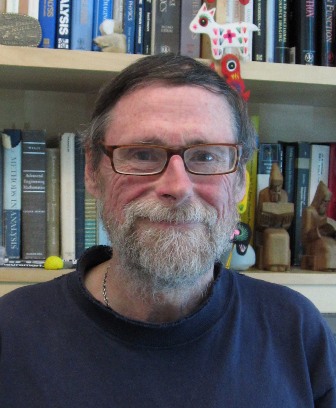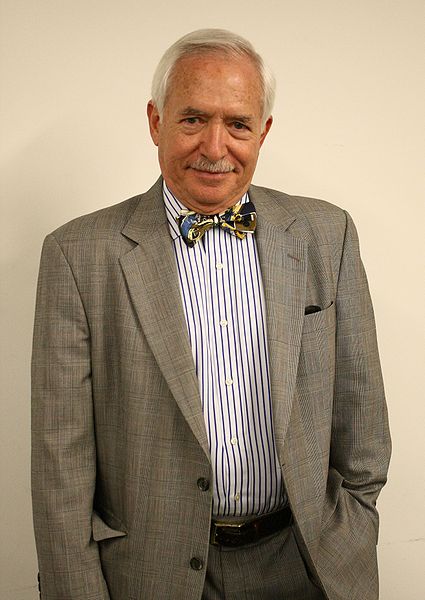Keynote Speakers
-
GENI – Global Environment for Network Innovations by Chip Elliott GENI Project Office and Raytheon BBN Technologies, USA Abstract The Global Environment for Network Innovations – GENI – is a suite of research infrastructure, sponsored by the National Science Foundation that is rapidly taking shape in prototype form across the United States. Similar national efforts are now up and running in Europe, Japan, Korea, Brazil, and Canada.GENI enables deep programmability throughout the network, promoting innovations in network security, technologies, services, and applications. Researchers install their own software deep into GENI to try out large-scale experiments in future global systems that may or may not be compatible with today’s Internet. GENI is currently expanding to about 50 GENI-enabled university campuses, with “at scale” growth envisioned to span 100-200 campuses in coming years. This talk introduces GENI and its peer efforts in other nations, and describes the global effort to create an international federation of these national efforts so that we can begin to run truly world-wide experiments in the near future.
Biography Chip Elliott is Principal Investigator for GENI, a nationwide suite of experimental infrastructure being created by the National Science Foundation for at-scale research in future internet architectures, services, and security. He is Chief Scientist at Raytheon BBN Technologies, Adjunct Professor at Dartmouth College, a Fellow of the AAAS and IEEE, and an active inventor with over 85 issued patents. Mr. Elliott has served on many national panels and has held visiting faculty positions at Tunghai University in Taiwan and the Indian Institute of Technology, Kanpur.Magnetic Resonance Imaging: It’s just a Fourier Transform by Gary Glover Radiological Sciences Laboratory, University of Stanford Abstract Magnetic Resonance Imaging is a fundamental tool in medicine, widely used for diagnosis, staging of disease and for monitoring of therapy. Since its inception in the early 1970’s, research and development of improved MRI techniques has been steady, widespread and exciting. As the title implies, MRI involves many fundamental concepts in signal processing. A major recent focus is on new reconstruction methods together with sparse sampling to speed up acquisition, or increase resolution or accuracy. In this talk we will explore the basis of MRI, notable developments and grand challenges moving forward. Biography Gary Glover is a Professor of Radiology and Director of the Radiological Sciences Laboratory in the Department of Radiology at Stanford University. Previously he was a senior physicist in GE Healthcare’s Applied Sciences Laboratory where he helped define GE’s first CT and MRI scanners. He has been a pioneer in biomedical imaging technology for nearly 40 years, with contributions in ultrasound, computed tomography and magnetic resonance imaging, chronicled in some 360 publications. He has received a number of honors, including membership in the US National Academy of Engineering, Gold Medal of the ISMRM, Fellow of the ISMRM, Fellow of AIMBE, and recipient of the Outstanding Researcher Award of the RSNA.The Origins of GENI: A Story of Sustained Research Community Engagement by Peter A. Freeman Georgia Tech. and formally NSF, USA Abstract How best to get computers to communicate with each other has continued to engage some of the best minds in computing research since the late 1950s. As the technology developed through the succeeding decades, largely by the efforts of a strong community of researchers, the Internet emerged in the mid-1990s. As the Internet rapidly became commercialized it was no longer a wonderful, experimental platform for research. This created the environment in which GENI emerged. My talk will outline this history and draw some lessons of community formation and focused efforts that may be of use to those interested in building effective, national research communities. Biography Peter A. Freeman is Emeritus Dean and Professor at Georgia Tech where he was Founding Dean of the College of Computing in 1990. He was Assistant Director of the National Science Foundation, heading the Computer and Information Science and Engineering (CISE) Directorate, from 2002-2007. While at NSF, he directed the initiation and early development stages of the Global Environment for Network Innovations (GENI) Project. He currently engages in a variety of pro bono writing and speaking activities, serves on a number of advisory boards, and provides strategic and operational guidance for organizations involved in research, education, and development. He lives in Washington, DC.5G: Era beyond Data Rate by Dr. Chih-Lin I China Mobile Chief Scientist of Wireless Technologies Abstract The rapid adoption of Smart Phones has triggered an explosive growth of mobile Internet applications. China Mobile, as an example, has observed 81 times traffic growth over past 5 years. It has been a common consensus that next generation of wireless system, IMT-2020, will facing 1000x traffic load increase. However, this is not necessarily a straightforward blessing for mobile operators. Globally MNOs are facing significant challenges trying to figure out a technical road map to increase the network capacity dramatically while keeping the TCO at a reasonable level. Moreover, a healthy competition with growing OTT industry for a fair share of the benefit from the traffic explosion, as well as user experience improvements are of fundamental importance. This talk will share the current status of global 5G efforts, and CMCC’s view and technical roadmap towards next generation mobile and wireless world. Biography Chih-Lin I is the China Mobile Chief Scientist of Wireless Technologies, in charge of advanced wireless communication R&D effort of China Mobile Research Institute (CMRI). She established the Green Communications Research Center of China Mobile, spearheading major initiatives including 5G Key Technologies R&D; high energy efficiency system architecture, technologies, and devices; green energy; C-RAN and soft base station.Chih-Lin received her Ph.D. degree in Electrical Engineering from Stanford University, has almost 30 years experience in wireless communication area. She has worked in various world-class companies and research institutes, including wireless communication fundamental research department of AT&T Bell Labs; Headquarter of AT&T, as Director of Wireless Communications Infrastructure and Access Technology; ITRI of Taiwan, as Director of Wireless Communication Technology; Hong Kong ASTRI, as VP and the Founding GD of Communications Technology Domain. Chih-Lin received the Trans. COM Stephen Rice Best Paper Award, and is a winner of CCCP “National 1000 talent” program. She was an elected Board Member of IEEE ComSoc, Chair of ComSoc Meeting and Conference Board, and the Founding Chair of IEEE WCNC Steering Committee. She is currently an Executive Board Member of GreenTouch, and a Network Operator Council Member of ETSI NFV.



